SAO PAULO – For three years, Dan Gaspar pleaded with his wife to visit Tehran. For three years, the women who plopped down in the chairs at Mary Gaspar’s salon in Glastonbury, Conn., convinced her it wasn’t such a good idea.
So did her friends. And her family. The regime’s oppressive reputation and antagonistic attitude toward the United States were simply too much for Mary to overcome.
It was a narrative with which Gaspar was familiar. It was the same one he had heard over and over in 2011 when Carlos Queiroz took over the Iranian national team and asked his long-time assistant and close friend of nearly 20 years to come along for an adventure in Persian soccer.
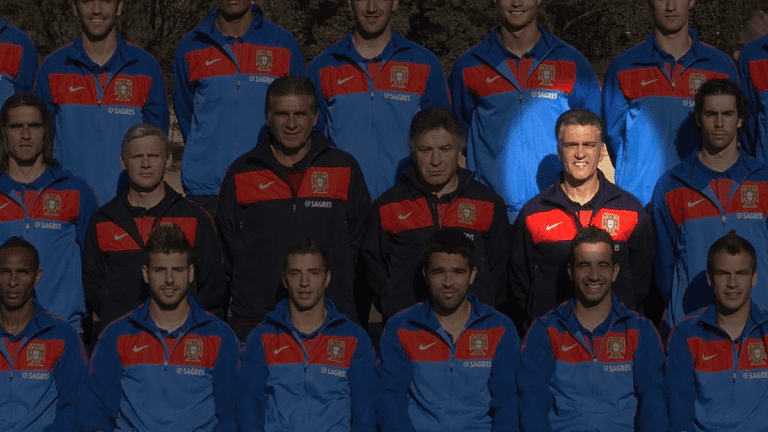
“I asked all the experts. I asked my loved ones, my friends, my family members,” Gaspar recalls during an interview at Corinthians’ training facility in northwest São Paulo. “There really weren’t words of encouragement to accept this project. I think with my brain, I feel with my heart and then I make a decision with my gut. My gut told me to take this adventure, go on this journey.”
It was Queiroz’s gut and the 1992 US Cup, a round-robin tournament between the United States, Ireland, Portugal and Italy that, laid the foundation for the Portuguese-American's journey to Tehran.
Gaspar was 36 years old in 1992 when he found himself appointed the liaison to the Portugal. He and Queiroz, the team’s head coach, hit it off immediately, two former goalkeepers bonding over shared ideas about life and the game, specifically why the Portuguese could not keep up with the rest of the world between the posts.
“We both agreed that if Portugal could produce Eusébio and could produce [Luís] Figo and now [Cristiano] Ronaldo, why can’t we produce world-class goalkeepers?” Gaspar says. “It came down to a simple conclusion: The fact is there was no professional system.”
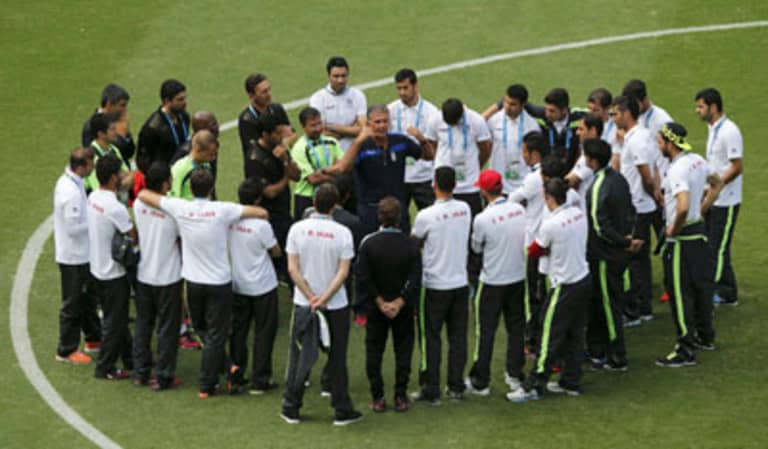
So, paying his own way following Queiroz’s invitation, Gaspar traveled to the old country. He made presentations in Lisbon, and he earned the trust and loyalty of the man who would then bring him along during stops at Nagoya Grampus Eight, the MetroStars, South Africa and Portugal, with Gaspar also holding posts at Porto, Sporting Lisbon and Benfica along the way, in addition to a few stops on the college circuit.
“Today we are more than coaches working together; we are friends,” Queiroz tells MLSsoccer.com. “We see the game in the same direction. When you have a relationship with one of the members of your staff that you’ve known for awhile, sometimes you don’t need to even think or say something. He knows exactly what are my expectations.”
But it was not easy to get to that point, and Queiroz did not accept anything short of perfection when Gaspar made the jump to the Portuguese U-16 team in 1992, then the U18s a year later, a “rude awakening” for a coach reared in the US, far from the obsessive soccer factories of Europe.
Long after midnight in a hotel room in Tampa, Fla., two years after their first meeting, Queiroz paced back and forth, challenging his friend. Would he throw his life into pursuing a career in soccer and accept the responsibility and accountability that came with coaching at the highest level?
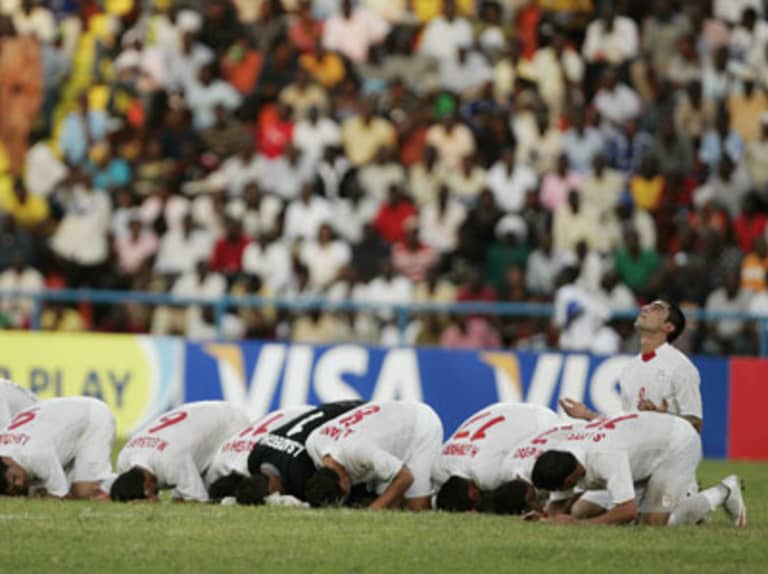
The pep talk lit Gaspar’s fire, one he says has yet to be extinguished. He would take the plunge by Queiroz’s side, first taking a job at Sporting Clube de Portugal, then joining his mentor in Japan.
“I owe [the United States] a great deal of my development, but most of that was about the business of soccer,” he says. “Whereas when I traveled overseas, it was about the business of winning.”
It was that business the Iranians did not truly grasp when Queiroz and Gaspar arrived in April 2011. They loved the game, but the culture behind it failed to prepare players for the international level. Paid handsomely at home, they were complacent and comfortable. Professionalism was lacking.
It did not take the new coaching staff long to diagnose the reasons why the Iran Pro League was not producing the players they would need to overcoming crushing international sanctions to qualify for the 2014 World Cup in Brazil. Though the technical ability was there, fitness was a serious issue, not least because league games often devolved into parades of trainers on and off the pitch as players dove, rolled and flopped at even the slightest contact.
“The fittest people are the medical staff,” Gaspar says, “because they’re running in and off the pitch consistently throughout the match.”
If that was an obstacle, so was the attitude of the nation’s elite players, a group Gaspar and Queiroz found lounging on the training field waiting to be put through their paces at the new coaching staff’s very first session.
The theatric diving in league matches? That extended to national team’s training pitch as well, Iran’s greatest talents throwing themselves to the ground at the slightest contact, bringing practice grinding to a halt as they called for treatment.
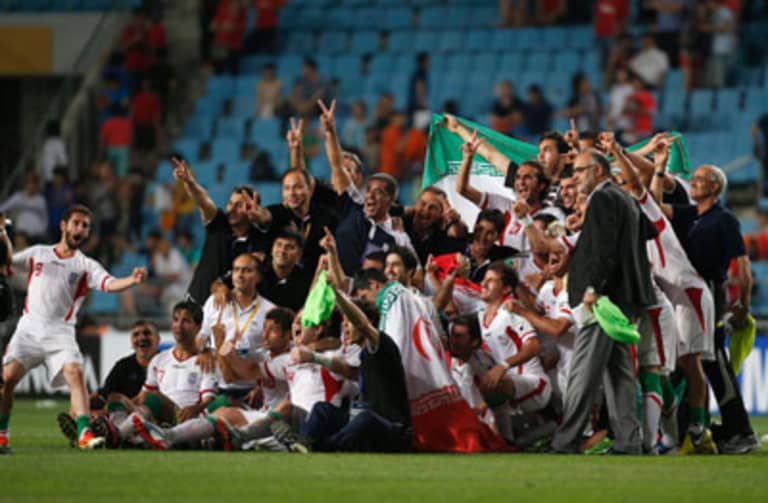
“Unlike the rest of the world, where the league is preparing their players for the national team, we’re actually the reverse,” Gaspar says. “The national team is preparing the players for their league.”
So they instituted mandatory warmup routines, the players taking responsibility for setting the tone before their coaches even said a word. They made fitness a priority, and playing through contact became the norm rather something to be applauded.
Slowly, Iran, a soccer-obsessed nation of nearly 78 million which last played in a World Cup in 2006, began to show signs that the ideas were sticking. The people got behind the Persian Stars – just shy of 100,000 packing Azadi Stadium for each home match to celebrate much more than a game.
“It’s an opportunity for these fans to jump, to dance, to sing, to chant where they might not otherwise be able to do in the streets,” Gaspar says. “So it’s a way of expression. It creates a magical environment.”
It helped fuel a magical campaign that saw the Iranians finish atop their group in the fourth and final round of Asian Football Confederation qualifying, their place in Brazil sealed when they went to South Korea and defeated the regional power 1-0 behind a goal from Dutch-Iranian
Reza Ghoochannejhad
, who was one of several foreign players called in by Queiroz and his staff.
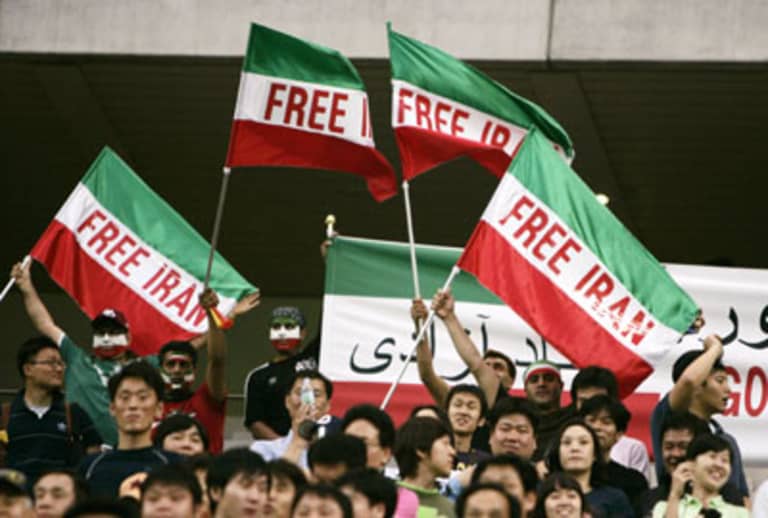
“We had no champagne, we didn’t have the Budweisers,” Gaspar says of the locker-room environment following that historic moment. “But we had people who were so proud to deliver happiness to their people.”
A people who, according to Gaspar, live one life in the public sphere and another behind closed doors. A “kind and generous” people who want nothing more than to prove wrong the perceptions about a country vilified in the Western world. A people who welcomed Mary Gaspar with open arms when she finally made the leap for three weeks this year.
“They say, ‘We love you.’ Anywhere else in the world, when someone says I love you, you kind of say, 'Whoa,'” Gaspar says. “But for them, it really it is genuine. They really appreciate that we were willing to come to their country, and we were willing to dedicate three-and-a-half years of our lives to try to do something special.”
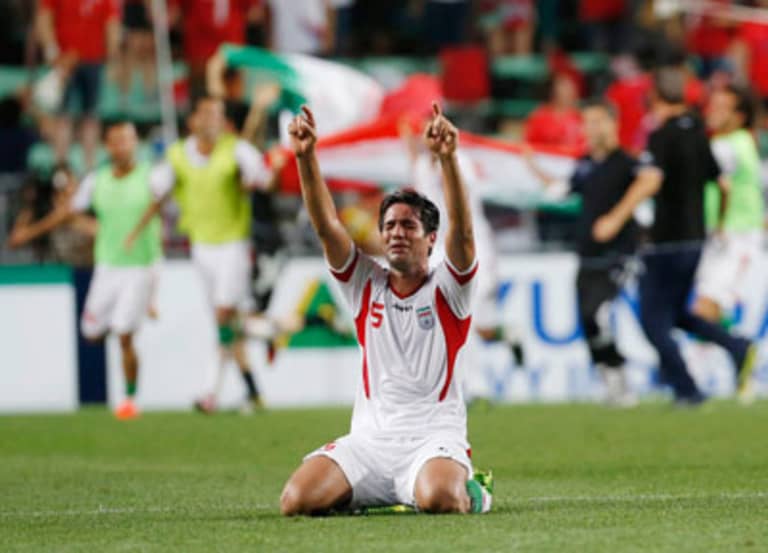
The project continues with Iran set to face already-eliminated Bosnia-Herzegovina on Wednesday (noon ET, ESPN2, match preview) in a match that could send Iran on to the Round of 16 for the first time in their history.
Of course, they could just as easily crash out in the group stage, a Lionel Messi wonder goal the possible difference between a nation’s joy and despair. No matter what happens, Gaspar does not know what he will do when his contract with the Iranian FA terminates at the conclusion of the World Cup.
He says he has received some offers internationally at both the club and national-team level. Intriguing ones, perhaps an opportunity to coach on a fifth continent. No decision yet, though, just things to mull over when his current adventure comes to an end.
“My ultimate destiny, I believe, is to come back to my home,” Gaspar says. “To come back to the United States of America. Not that I’m better or special, but I think that I’m unique being an American, having that international experience in an arena where Americans are not so welcomed. My goal is to come back home and hopefully develop a true American soccer culture.”









